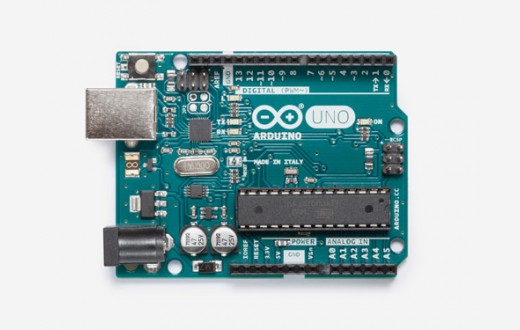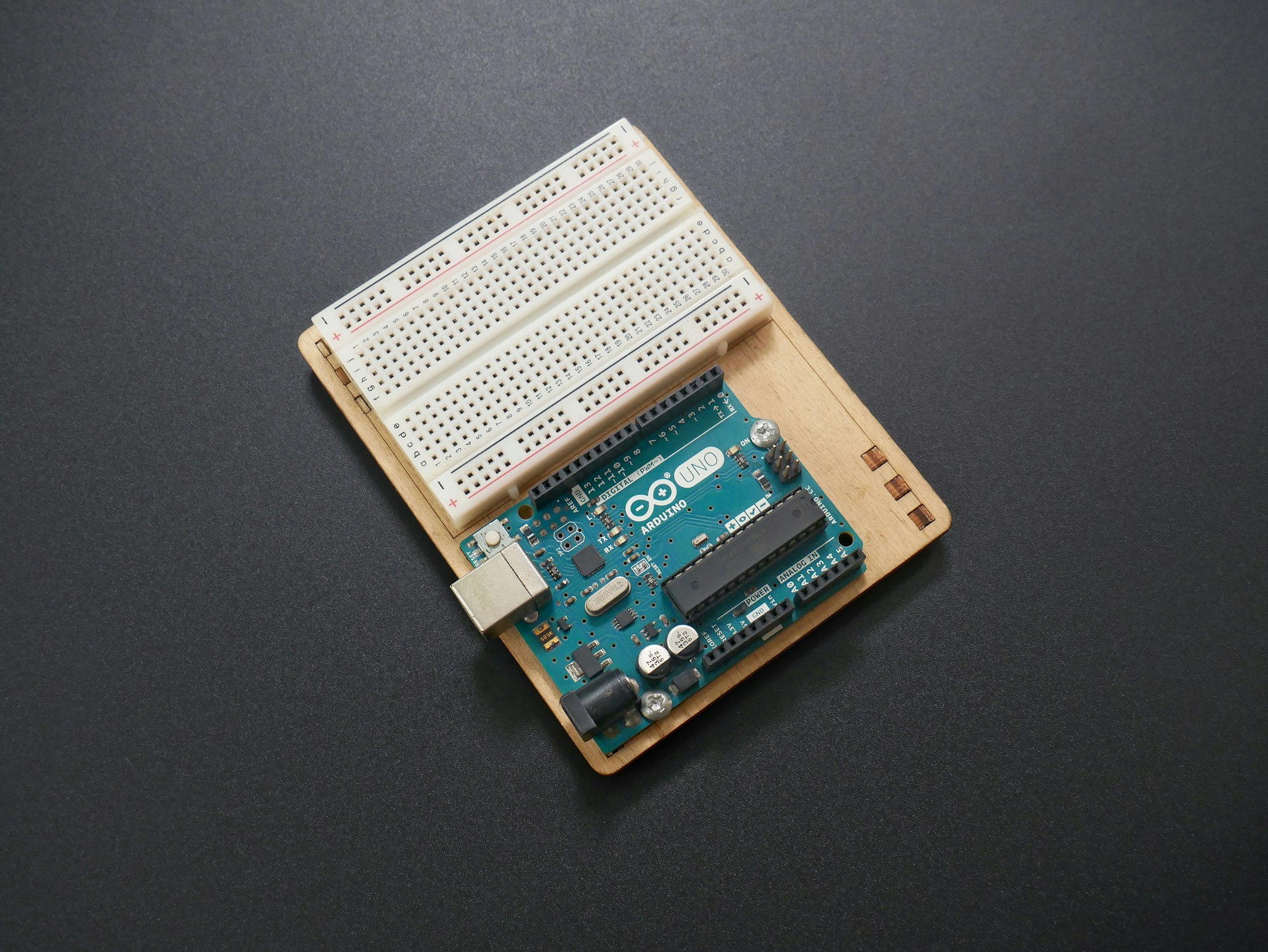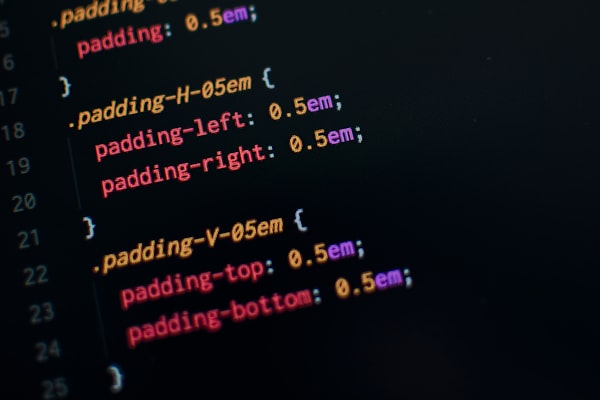16 Best Trending Arduino Medical Projects for 2024
Table of Content
Arduino is an open-source electronics platform based on easy-to-use hardware and software. It's designed for anyone making interactive projects, from hobbyists to professionals.

What makes Arduino particularly appealing is its affordability, ease of use, and the vast community support that provides countless resources and project ideas. These features make it an ideal tool for bioengineering students who are eager to explore and create.
Arduino is highly advantageous for prototyping medical projects, especially for students and bioengineering students, due to several key reasons:
- Accessibility and Ease of Use: Arduino boards are designed to be beginner-friendly with a straightforward development environment. This accessibility lowers the barrier to entry for students who may not have extensive programming or electronics experience. The integrated development environment (IDE) is free and supports a simplified version of C++, making it easier for students to learn and experiment with coding.
- Versatility in Prototyping: Arduino boards can interface with a wide range of sensors, actuators, and other components commonly used in medical projects. This versatility allows students to prototype various functionalities such as measuring physiological signals (e.g., heart rate, temperature), controlling actuators (e.g., pumps, motors), or creating feedback systems for medical devices.
- Cost-Effectiveness: Arduino boards are relatively inexpensive compared to other microcontroller platforms, which is beneficial for students and educational institutions with limited budgets. This affordability enables students to experiment with multiple iterations of their projects without significant financial constraints.
- Community and Support: Arduino has a large and active community of developers, students, and educators. This community provides ample resources, including tutorials, forums, and open-source project examples. For students working on medical projects, this community support can be invaluable in troubleshooting issues, sharing ideas, and learning from others' experiences.
- Integration with Prototyping Tools: Arduino boards can be easily integrated with 3D printing, laser cutting, and other rapid prototyping technologies. This capability allows students to create custom enclosures or mounts for their medical prototypes, facilitating a more professional and functional end product.
- Safety and Regulatory Considerations: While Arduino itself may not be certified for medical use, it is suitable for developing prototypes and proofs of concept. Students can use Arduino to demonstrate the functionality and feasibility of their medical device ideas before seeking further certification and regulatory approvals.
- Educational Value: Using Arduino for medical projects provides valuable educational experiences beyond technical skills. It encourages interdisciplinary collaboration between engineering and medical fields, fosters creativity in designing solutions to healthcare challenges, and introduces students to the complexities of real-world applications in biomedical engineering.
Here are the best trending Arduino-based medical projects.
The Artificial Light Texture (ALT) technology for non-contact vital signs (heartbeats, respiration) monitoring
The "ALT" project by lvetech on GitHub focuses on non-contact, real-time monitoring of heartbeats and respiration using Artificial Light Texture (ALT) technology. ALT employs a video camera and special light sources to capture vital signs without direct contact, even through clothing or blankets.
The system uses simple, inexpensive hardware like Raspberry Pi and various cameras, making it accessible for diverse applications. This innovative approach amplifies small body movements related to heart and respiratory activity, providing accurate monitoring essential for healthcare advancements.
Patient Health Monitoring System using Arduino Uno
The "Patient Health Monitoring System using Arduino Uno" project on GitHub is a theoretical/virtual laboratory project developed for a computer interfacing course. It uses Arduino Uno to monitor and display patients' heart rate and body temperature, logging this data for medical review. The system includes sensors for heartbeat and temperature, and visualizes data through numerical displays and waveform charts using LabVIEW.
Benefits
- Real-time Monitoring: Provides continuous health data, aiding in early detection of medical issues.
- Data Logging: Stores historical data for thorough medical analysis.
- Educational Value: Enhances students' understanding of biomedical sensor integration and data visualization.
Arduino Based ECG & Heartbeat Monitoring Healthcare System
The Arduino Based ECG & Heartbeat Monitoring Healthcare System is a project utilizing the Arduino platform and the AD8232 ECG module to monitor heart activity. This system employs ECG sensors to capture and convert heartbeats into electrical signals, which are then processed and displayed using the Arduino.
The project provides detailed steps on hardware connections and software requirements, offering a cost-effective, accessible solution for real-time heart monitoring.
HealthyPi
HealthyPi v4 is a versatile HAT for Raspberry Pi and a standalone device that measures vital signs crucial for medical diagnosis and treatment. It records ECG data, heart rate, heart-rate variability, respiration, SPO₂, and body temperature in real-time with high accuracy. Its open-source nature, affordability, mobility, and wireless capabilities make it ideal for both medical research and personal health monitoring, providing a comprehensive view of the user's health within their environment.
For more details, visit HealthyPi v4.
Smart Medicine Dispenser
This is an Android application controls a smart medicine dispenser, storing data on the cloud and connecting to an Arduino via Bluetooth to dispense pills. The app provides an overview of daily pills, history of pill intake, and allows for pill alarm settings. It also tracks the remaining number of pills and sends refill alerts. The app includes a settings tab for user details and caretaker contact information.
Alarms sound for pill intake, offering options to take the pill, snooze, or skip. Pill alarms and usage data are stored in a local SQLite Database and synced with an online MySQL Database. The dispenser prototype has expandable container units, each controlled separately with its own LED and can hold up to 7 servings.
MedProfileWidget
This is an innovative NFC patient bracelet and scanner system that became the winner of the competition. This system was designed primarily for the use of first responders.
The system provides Emergency Medical Services (EMS) with instant access to crucial patient information. This immediate access to vital data significantly enhances the efficiency and effectiveness of emergency response, potentially saving lives.
Urinary Catheter
The urinary catheter device uses an Arduino, distance sensor, water sensor, motor, Neopixel LED ring, alarm, and tubing. The water and distance sensors are crucial for monitoring fluid levels and distance, respectively.
The motor and tubing simulate urine flow, while the LED ring reduces component numbers and enhances display. The distance sensor uses ultrasound bursts to measure distance, which informs the status of the urinary bag.
The water sensor returns water resistance values, also used to determine the bag's status. The LED ring and alarm are controlled by the Arduino code and respond based on the water level resistance and distance sensor readings.

EasyUltrasonic with Arduino
The EasyUltrasonic is an Arduino project and library for working with ultrasonic sensors, specifically the HC-SR04 and Ping))) sensors, to measure distance.
It also supports DHT temperature/humidity sensors for precise distance values. The library requires Arduino IDE 1.0.0 or newer and is compatible with Arduino UNO and Arduino Mega boards. Additional hardware requirements include male to female wires or a breadboard with male to male wires.
The project repo include a full details how to get it working which makes it beneficial for students.
IoT based health monitoring system | Arduino Project
IoT-based patient health monitoring systems, which can include devices ranging from smartwatches to hospital equipment, collect and transmit health data such as heartbeat, body temperature, blood pressure, and more.
These systems are particularly useful when patients and health experts are in different locations, allowing for remote monitoring and immediate action in case of emergencies.
Organture

The Organture Application aids in organ preservation for transplant operations by monitoring organ temperature during transport. Using a thermistor sensor, it alerts medical staff if the temperature falls outside a specified range, which can be set via a mobile application.
Medicine Reminder With Arduino
The Arduino-Based Medicine Reminder System is designed to help patients remember to take their medication on time. The system uses an Arduino nano to control the system, a real-time clock to display the time on an LCD display, and a set button to set the alarm time for medication. The system allows the user to set multiple alarm times for medication reminders.
Patient Health Monitoring System Using Arduino With Code and Circuit || Proteus Simulation
This video demonstrate how to use Arduino to build a feature rich patient health monitoring system.
Arduino Medical Projects
The Arduino Projects are open-source initiatives that focus on using Arduino C and hardware prototypes to address medical life-based problems. The projects include an Operating Room Fluid Level indicator, an Organ Transportation App Tracker, a Physical Rehabilitation Self-Assistant, Deaf Sign Language Translator Gloves, a Telemedicine Bed, and a Baby Incubator. These innovative solutions aim to improve healthcare outcomes through technology.
Sign Language Translator Glove
Telemedicine Smart Bed
Simple Patient Health Monitoring System Using Arduino (Video)
Resources
- Is Arduino reliable for serious tasks, such as medical machines?
- Reliability of the Arduino platform for industrial use
- 9 Biometric Sensors Arduino Compatible
- 15 Arduino Medical Projects for 2023
- MySignals HW BLE Complete Kit (eHealth Medical Development Platform for Arduino)
- Healthcare monitoring With Arduino
- Glia Free Medical hardware
Glia is a project with the goal of releasing high quality free/open medical hardware to increase availability to those who need it. - 8 Arduino-Compatible Biometric Sensors for Hobbyists















